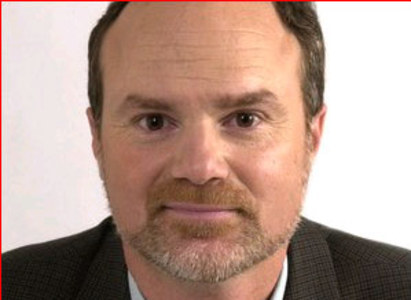Bloc Québécois leader Gilles Duceppe recently reiterated his party’s conditions for supporting the next federal budget. Ottawa should transfer to Quebec at least $5-billion so as to satisfy the provincial government’s demands related to different files: compensation for the harmonization of the federal and provincial sales taxes, changes to the equalization formula, increases in transfers for postsecondary education, etc. “It’s Quebec’s turn,” Mr. Duceppe asserted. These sums “are owed to Quebec,” claims a supporting document published by the Bloc.
A strong argument can be made in favour of some of the Bloc’s demands. For instance, it is difficult to understand why the Conservative government takes such a hard line in its talks with Quebec on tax harmonization since that province harmonized the GST and its PST 20 years before Ontario and British Columbia did.
However, the Bloc’s piling up of demands for more federal money is outrageous. The view that those billions are “owed” to Quebec is even more so. According to the latest Provincial Economic Accounts, in 2008, the federal government spent $12.3-billion dollars more in Quebec than what Quebeckers paid in federal taxes. If we were to view the federation as a bank, it is Quebec that would owe money to the richer regions of the country, not the reverse. Of course, Canada is not a bank. Federal transfers, especially the equalization program of which Quebec is an important beneficiary, are the fiscal expression of national solidarity and thus are pillars of Canada’s unity.
Mr. Duceppe’s budgetary demands are typical of his party’s approach to the country. Only Quebec’s so-called interests are considered. On every issue, the government of Canada should yield to the province’s point of view, notwithstanding the needs of other regions. For instance, the Bloc suggests that, as a way of funding Quebec’s needs, the federal government should increase the tax burden of the oil and gas industry. That would signal “the end of the party” for that industry, the BQ says. Of course, Mr. Duceppe conveniently ignores the fact that a big part of the equalization payments ($8-billion) received each year by Quebec comes from the Alberta taxpayers.
The Bloc’s repeated demands cause a lot of irritation in other regions of the country, justifiably so. When Canadians from other provinces look at the House of Commons, they see the province of Quebec represented mainly by separatists. Consequently, they might conclude that Mr. Duceppe’s narrow and uncompromising view of the country is shared by a huge majority of Quebeckers. That is not the case. According to a Léger Marketing poll published Monday by Le Devoir, if an election were held today, the BQ would receive 39 per cent of the vote. Together, the Liberals, New Democrats and Conservatives would command the support of 57 per cent of the Quebec electorate.
Canadians from the other provinces should know that many Quebeckers are ill at ease with Mr. Duceppe’s attitude. Many would like nothing better than being represented in Ottawa by MPs who want to work with their colleagues of the rest of the country, for the good of Quebec and of Canada. Unfortunately, opposition to the Bloc is still too divided to topple that party’s domination.
Like that of all other provinces and territories, Quebec’s positions on different issues should be judged not by their origin but by their reasonableness. Of course, the government of Canada should always take into account Quebec’s particular situation, it being the only province with a French-speaking majority. However, that characteristic, so precious to Canada’s identity, does not mean the province is always right.
***
André Pratte is editorial pages editor at La Presse. His latest book, a biography of Wilfrid Laurier, will be published next month as part of Penguin’s Extraordinary Canadians series.
It's not always Quebec's turn
Élections fédérales - 2011 - le BQ et le Québec

André Pratte878 articles
[une chronique intitulée « Tout est pourri » (critique de Anne-Marie Gingras) ->http://books.google.fr/books?id=EZWguAMXAtsC&pg=PA27-IA27&lpg=PA27-IA27&dq=pratte+Tout+est+pourri&source=bl&ots=MUti9NTQuH&sig=h2zgJlLgOg844j5ejxnUl4zH2_s&hl=fr&sa=X&ei=73RrT8a...
Cliquer ici pour plus d'information
[une chronique intitulée « Tout est pourri » (critique de Anne-Marie Gingras) ->http://books.google.fr/books?id=EZWguAMXAtsC&pg=PA27-IA27&lpg=PA27-IA27&dq=pratte+Tout+est+pourri&source=bl&ots=MUti9NTQuH&sig=h2zgJlLgOg844j5ejxnUl4zH2_s&hl=fr&sa=X&ei=73RrT8aQEqnh0QHuh4GyBg&ved=0CEEQ6AEwBQ#v=onepage&q=pratte%20Tout%20est%20pourri&f=false]
[Semaine après semaine, ce petit monsieur nous convie à la petitesse->http://www.pierrefalardeau.com/index.php?option=com_content&task=view&id=30&Itemid=2]. Notre statut de minoritaires braillards, il le célèbre, en fait la promotion, le porte comme un étendard avec des trémolos orwelliens : « La dépendance, c’est l’indépendance ». « La soumission, c’est la liberté ». « La provincialisation, c’est la vraie souveraineté ». « La petitesse, c’est la grandeur ». Pour lui, un demi-strapontin à l’Unesco est une immense victoire pour notre peuple. C’est la seule politique étrangère qu’il arrive à imaginer pour le peuple québécois. Mais cet intellectuel colonisé type n’est pas seul. Power Corp. et Radio-Cadenas en engagent à la poche.























Laissez un commentaire Votre adresse courriel ne sera pas publiée.
Veuillez vous connecter afin de laisser un commentaire.
Aucun commentaire trouvé